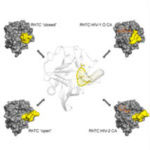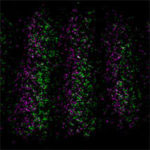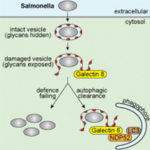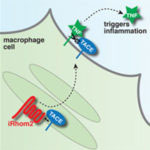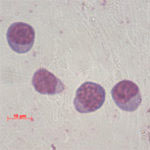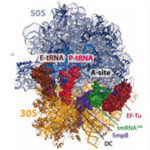
Venki Ramakrishnan’s group, from the LMB’s Structural Studies Division, has provided structural evidence for how bacterial transfer-messenger RNA (tmRNA) rescues stalled ribosomes at the end of prematurely truncated or defective messenger RNAs and targets incompletely synthesised proteins for degradation. tmRNA (also known as 10S RNA) combines properties of both transfer RNA (tRNA) and messenger RNA (mRNA) and works in concert with Small Protein B (SmpB).
